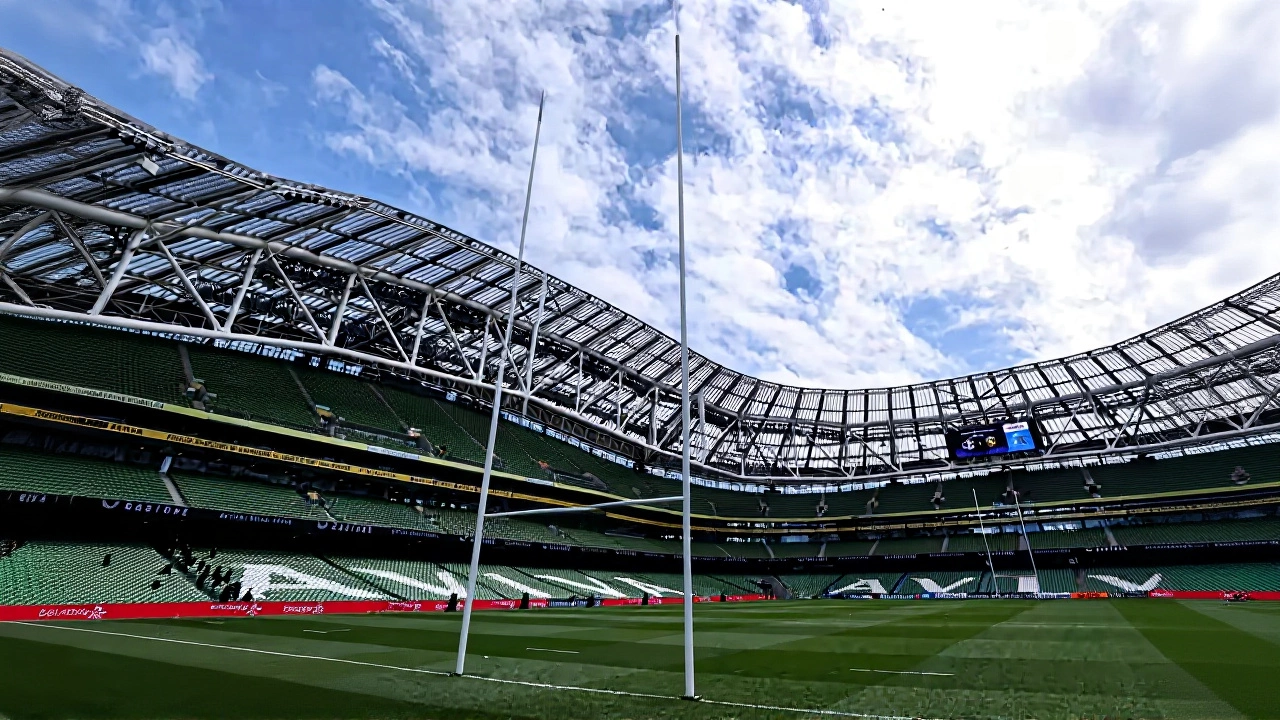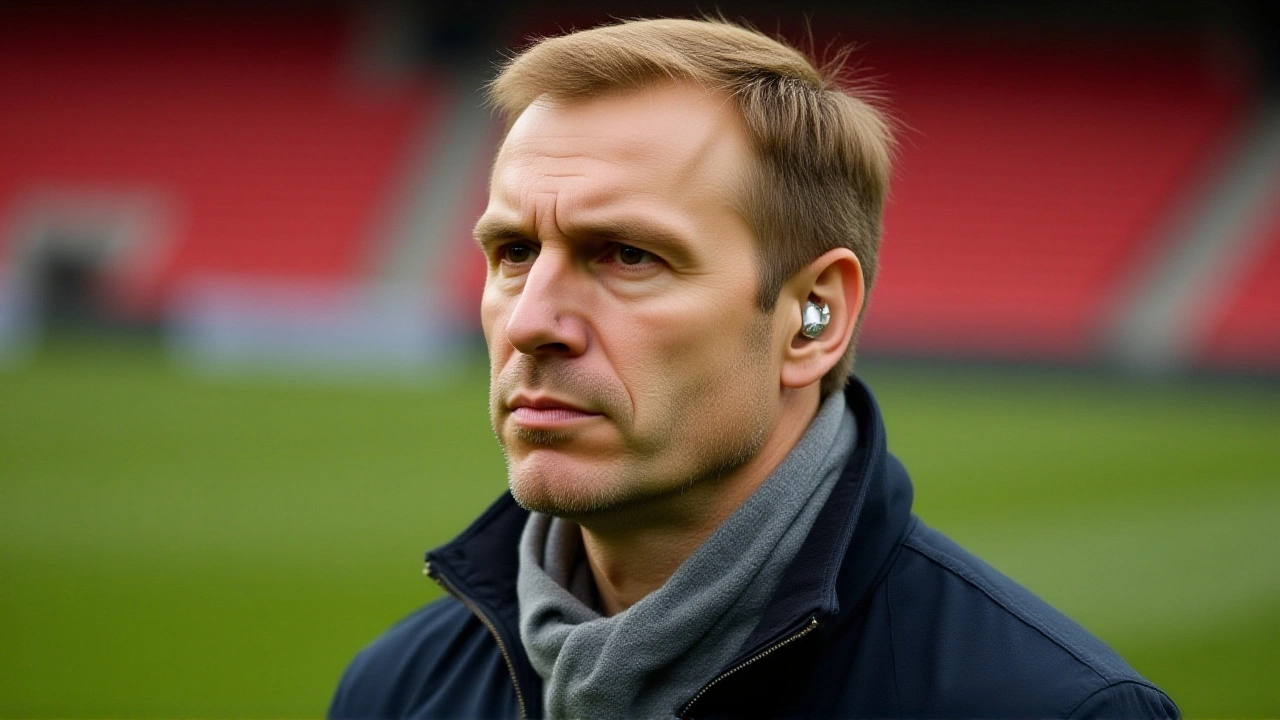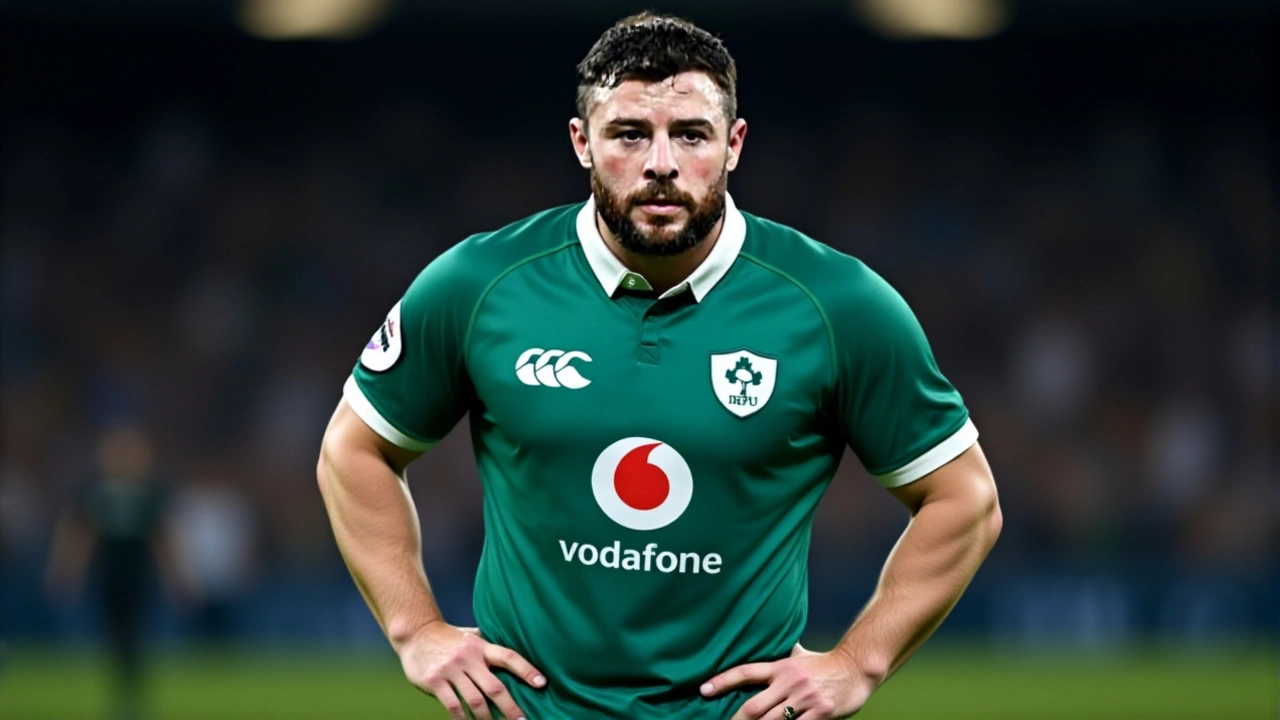Springboks End 13-Year Dublin Drought with 24-13 Win Over Ireland
 Nov, 23 2025
Nov, 23 2025
The South Africa national rugby union team finally conquered the Aviva Stadium on Saturday, November 22, 2025, beating Ireland 24-13 in a bruising, emotionally charged Autumn Nations Series 2025 match at Aviva Stadium in Dublin. It wasn’t pretty — but it was historic. After 13 years of heartbreak, frustration, and near-misses in the Irish capital, the Springboks broke through with a gritty, disciplined performance that exposed Ireland’s discipline problems and capitalized on every opportunity. Coach Rassie Erasmus summed it up perfectly: "Glad we got the monkey off our backs."
Breaking the Dublin Curse
Since their last win in Dublin in 2012, the Springboks had lost four straight Tests in Ireland — including three defeats in the past three years. Ireland had become the team that could always find a way to beat South Africa, even when outplayed. But this time, the script flipped. The Autumn Nations Series 2025 clash wasn’t just another fixture. It was a psychological barrier. And the Springboks didn’t just chip away at it — they shattered it.
At halftime, the scoreboard read 19-7. The Springboks were already in control, thanks to a brilliant try from Damian Willemse — a "superman finish" that left the Dublin crowd silent — and a penalty try awarded after a dominant, five-meter scrum. Ireland, meanwhile, looked rattled. Their set-piece, usually their fortress, was crumbling under pressure.
Discipline Costs Ireland
The turning point wasn’t a flash of brilliance. It was a cascade of penalties. Ireland’s discipline unraveled. Jack Crowley saw yellow for cynical play at the ruck. Then James Ryan, Ireland’s rock at lock, was sin-binned at the 20th minute. And when Andrew Porter joined them after a scrum infringement, Ireland was down to 12 men — a nightmare scenario against a team as physical as the Springboks.
South Africa didn’t just survive those moments — they thrived. They scored two tries while Ireland was shorthanded. They won eight line breaks to Ireland’s three. They forced seven turnovers. Even when Ireland clawed back to 12-7 after Dan Sheehan scored a try in the 36th minute, the Springboks responded with a penalty from Damian de Allende and another from the boot of Cobus Reinach to seal the deal.

A Historic Day for South African Rugby
On the same day the Springboks won in Dublin, Malcolm Marx — the double Rugby World Cup-winning hooker — was named World Rugby Men’s 15s Player of the Year. It was the first time in history two South Africans had won the award back-to-back. Marx joined Siya Kolisi and Eben Etzebeth as the only Springboks to claim the honor. The double celebration was more than coincidence — it was a statement. South African rugby isn’t just winning. It’s dominating.
And then there was RG Snyman. The Leinster-based lock reached his 50th Test cap in Dublin. "I’ll always remember my 50th Test," he said afterward. Snyman, who plays club rugby in Ireland, stood on the sideline as a symbol of the sport’s global nature — yet his loyalty to the Springboks never wavered. He was a key presence in the scrum and lineout, helping South Africa win 84% of their tackles.
What the Stats Don’t Tell You
South Africa had 53% possession and 51% territory. Ireland had 89% tackle completion to South Africa’s 84%. On paper, Ireland looked efficient. But efficiency doesn’t win games when you’re down to 12 men for 17 minutes. The Springboks didn’t need perfection — they needed pressure. And they applied it relentlessly.
Ireland showed immense resilience. Jack Crowley made two last-gasp scrambles to keep the ball alive. Caelan Doris carried like a man possessed. But the penalties kept coming. The scrum collapsed. The discipline vanished. And South Africa, ever patient, waited for their chance — then struck.

What’s Next?
This win confirms the Springboks as world number one, extending their winning streak on the 2025 Castle Lager Outgoing Tour. They’ve now won six straight Tests. Their next challenge: a November 30 clash against Argentina in Johannesburg. Meanwhile, Ireland faces a reckoning. Their defense held firm for long stretches, but their discipline — once their hallmark — is now their Achilles’ heel. Coach Andy Farrell will need to answer tough questions before the 2026 Six Nations.
For South Africa, this wasn’t just a win. It was a turning point. After years of being the team that couldn’t win in Dublin, they proved they could. And that changes everything — not just for the players, but for the entire rugby world watching.
Frequently Asked Questions
Why was this win so significant for the Springboks?
This was South Africa’s first win in Dublin since 2012 — ending a 13-year winless streak in Ireland’s capital. Ireland had beaten them three times in the past three years, making this victory a major psychological breakthrough. Coach Rassie Erasmus called it "getting the monkey off our backs," highlighting how deeply this loss streak had affected the team’s confidence.
How did Ireland’s disciplinary issues impact the match?
Ireland was reduced to 12 men twice after yellow cards to Jack Crowley, James Ryan, and Andrew Porter. With their scrum and defensive structure compromised, South Africa capitalized with two tries during those periods. Ireland conceded 11 penalties compared to South Africa’s 8, and their inability to stay on the field cost them dearly despite strong individual performances.
Who were the standout players for South Africa?
Damian Willemse scored a spectacular try early on, while Damian de Allende and Cobus Reinach handled the kicking duties with precision. RG Snyman reached his 50th Test cap and anchored the forward pack, and Malcolm Marx — named World Rugby Men’s 15s Player of the Year that same day — provided leadership from the bench. The entire backline showed improved cohesion under pressure.
What does this result mean for South Africa’s world ranking?
The victory confirmed the Springboks as the world’s top-ranked team, extending their winning streak to six consecutive Tests. With Ireland dropping in the rankings after their third loss in four matches against top-tier teams, South Africa’s position is now unchallenged. SARU confirmed the win solidifies their dominance heading into the 2027 Rugby World Cup cycle.
Why was Malcolm Marx’s award significant?
Marx became the fourth South African to win World Rugby Men’s 15s Player of the Year, and the first time two Springboks won it back-to-back — following Siya Kolisi’s 2024 win. His award, announced on the same day as the Dublin win, symbolized a golden era for South African rugby, with leadership, discipline, and excellence aligning across both team and individual honors.
What’s next for Ireland after this loss?
Ireland’s next major test is the 2026 Six Nations, where discipline will be scrutinized. Coach Andy Farrell must address the recurring penalty issues — particularly in the scrum and ruck — before facing New Zealand and France. The loss in Dublin exposed gaps in their game management under pressure, and without fixes, their World Cup hopes could be in jeopardy.